Related Research Articles

Sidney James Webb, 1st Baron Passfield, was a British socialist, economist and reformer, who co-founded the London School of Economics. He was an early member of the Fabian Society in 1884, joining, like George Bernard Shaw, three months after its inception. Along with his wife Beatrice Webb and with Annie Besant, Graham Wallas, Edward R. Pease, Hubert Bland and Sydney Olivier, Shaw and Webb turned the Fabian Society into the pre-eminent politico-intellectual society in Edwardian England. He wrote the original, pro-nationalisation Clause IV for the British Labour Party.
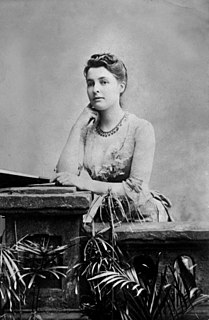
Martha Beatrice Webb, Baroness Passfield, was an English sociologist, economist, socialist, labour historian and social reformer. It was Webb who coined the term collective bargaining. She was among the founders of the London School of Economics and played a crucial role in forming the Fabian Society.
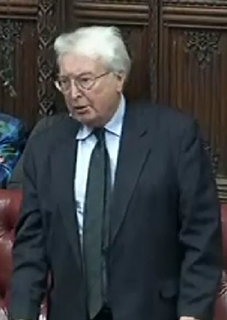
Peter Kingsley Archer, Baron Archer of Sandwell,, was a British lawyer and Labour Party politician. He was a Member of Parliament from 1966 until 1992, when he became a life peer. Between 1974 and 1979 he was Solicitor General for England and Wales.
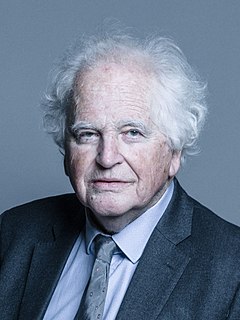
Giles Heneage Radice, Baron Radice, PC is a Labour member of the House of Lords. He was previously a Member of Parliament (MP) from 1973 to 2001.
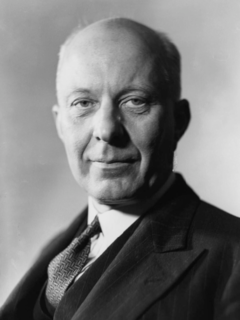
Edward Hugh John Neale Dalton, Baron Dalton, was a British Labour Party economist and politician who served as Chancellor of the Exchequer from 1945 to 1947. He shaped Labour Party foreign policy in the 1930s, opposing pacifism and promoting rearmament against the German threat, and strongly opposed the appeasement policy of Prime Minister Neville Chamberlain in 1938. Dalton served in Winston Churchill's wartime coalition cabinet; after the Dunkirk evacuation he was Minister of Economic Warfare, and established the Special Operations Executive. As Chancellor, he pushed his policy of cheap money too hard, and mishandled the sterling crisis of 1947. His political position was already in jeopardy in 1947 when he, seemingly inadvertently, revealed a sentence of the budget to a reporter minutes before delivering his budget speech. Prime Minister Clement Attlee accepted his resignation; Dalton later returned to the cabinet in relatively minor positions.

Robert Michael Maitland Stewart, Baron Stewart of Fulham, was a British Labour politician, life peer and Fabian Socialist who was a Member of Parliament for 34 years, and served twice as Foreign Secretary in the first cabinet of Harold Wilson.

Henry Snell, 1st Baron Snell, was a British socialist politician and campaigner. He served in government under Ramsay MacDonald and Winston Churchill, and as the Labour Party's leader in the House of Lords in the late 1930s.

Sydney Haldane Olivier, 1st Baron Olivier, was a British civil servant. A Fabian and a member of the Labour Party, he served as Governor of Jamaica and as Secretary of State for India in the first government of Ramsay MacDonald. He was the uncle of the actor Laurence Olivier.
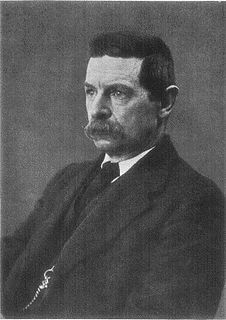
Edward Reynolds Pease was an English writer and a founding member of the Fabian Society.
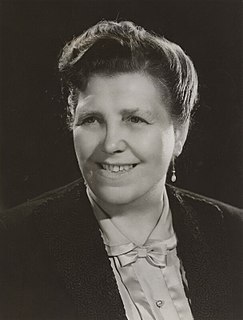
Dame Elizabeth Leah Manning DBE was a British educationalist, social reformer, and Labour Member of Parliament (MP) in the 1930s and 1940s. She organised the evacuation of orphaned or at risk Basque children during the Spanish Civil War.

The Cambridge University Labour Club (CULC), formerly known as Cambridge Universities Labour Club, is a student political society, first founded as the Cambridge University Fabian Society in 1905, to provide a voice for British Labour Party values of socialism and social democracy at the University of Cambridge. Although the society served only University of Cambridge students for most of its history, in 2007, membership was also opened up to students of Anglia Ruskin. In 2018, with the setting up of a student society for Labour members at Anglia Ruskin, the society reverted to existing for Cambridge University students only. CULC's varied past has seen it go through several disaffiliations with the national Labour Party, including periods in the 1960s and 1970s when it was under the influence of the entryist Militant tendency. It is currently affiliated to the Labour Party and the Cambridge Constituency Labour Party.

The Fabian Society is a British socialist organisation whose purpose is to advance the principles of democratic socialism via gradualist and reformist effort in democracies, rather than by revolutionary overthrow. The Fabian Society was also historically related to radicalism, a left-wing liberal tradition.

William Harold Hutchinson was a British trade unionist and Labour Party activist.

Peter Francis Curran was a British trade unionist and politician.
Joseph Forbes Duncan was a Scottish trade unionist and politician.
Albert Emil Davies was a British politician and writer.
David William Heath was a British Chartist and radical politician.
Alban Godwin Gordon was a British political activist.
Basil William Reid Hall was a British Labour Party activist and lifeboat sailor.
George Pearce Blizard was a British politician. A frequent candidate for office, he never won an election, but did serve a term on London County Council as an alderman.
References
- ↑ Wyncoll, Peter Harold (1982). The Labour Movement in Nottingham: 1880-1918 (PDF). Milton Keynes: Open University. p. 36. Retrieved 4 April 2019.
- 1 2 "Records of the new candidates". Fabian News. April 1902.